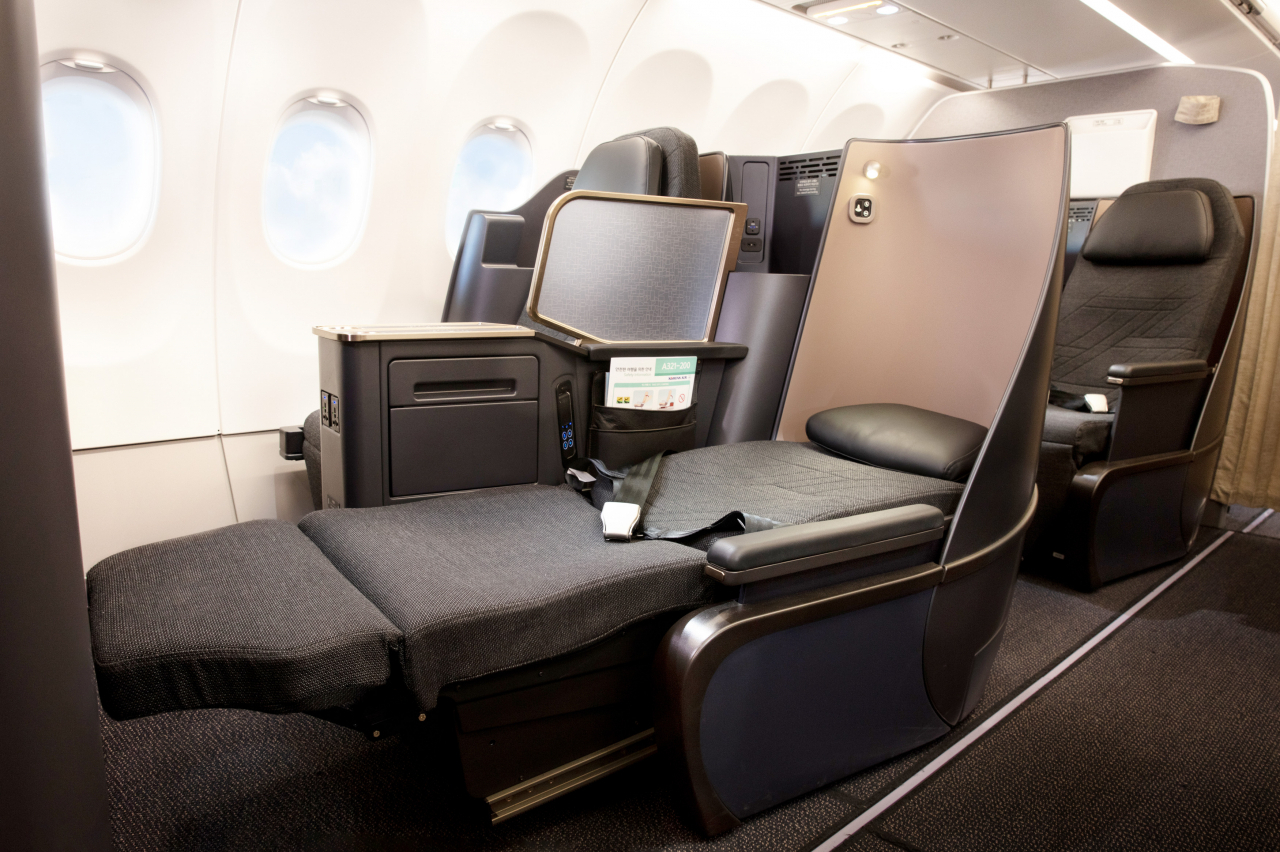 |
A lie-flat seat on Korean Air's Airbus 321neo (Korean Air) |
Korean Air, South Korea’s largest air carrier, will begin offering lie-flat seats in smaller aircraft -- its recently received Airbus 321neo -- in December, the company said Wednesday.
With the introduction of the A321neo, Korean Air will become the country’s first air carrier to have lie-flat seats in a narrow-body aircraft.
The A321neo, a single-aisle airplane with 182 seats, will operate on short-haul routes to China, Japan and Southeast Asia, according to Korean Air. Short-haul routes are those that typically last somewhere from 30 minutes to three hours.
“We are delighted to receive our first A321neo, which will be a great asset to our fleet, network and passengers,” said Lee Soo-keun, executive vice president and chief safety and operation officer of Korean Air. “This fuel-efficient, next-generation A321neo will bring our customers’ experience to a new level with the award-winning Airspace cabin and fully lie-flat business class seats.”
Of the 182 seats on A321neo, eight in the Prestige class have the 180-degree flat-bed function. The business class seats are equipped with a 44-centimeter personal monitor for on-demand services and a wireless smartphone charger, according to the company.
The seats in the economy class will offer 33-cm personal monitors, which are about 10 cm bigger than the existing models on Korean Air’s narrow-body aircraft. The overhead bins are 40 percent larger than other aircraft in the same class, providing more space for passengers’ carry-on baggage. An adjustable headrest and individual coat hook are also installed for each seat.
Inflight internet will be available for purchase from the first half of next year, according to Korean Air.
“By adding the A321neo to its fleet, Korean Air will benefit from enhanced operational efficiency and the highest levels of in-flight comfort,” said Christian Scherer, Airbus chief commercial officer and head of Airbus International. “With the A321neo’s per-seat fuel improvements of at least 25 percent compared with Korean Air’s previous generation same-sized fleet, the airline will reduce its operating costs significantly, as well as emissions at the same time.”
Korean Air said the introduction of the new Airbus aircraft is part of the airline’s fleet modernization plans. The company plans to receive a total of 30 A321neo aircraft by 2027.







